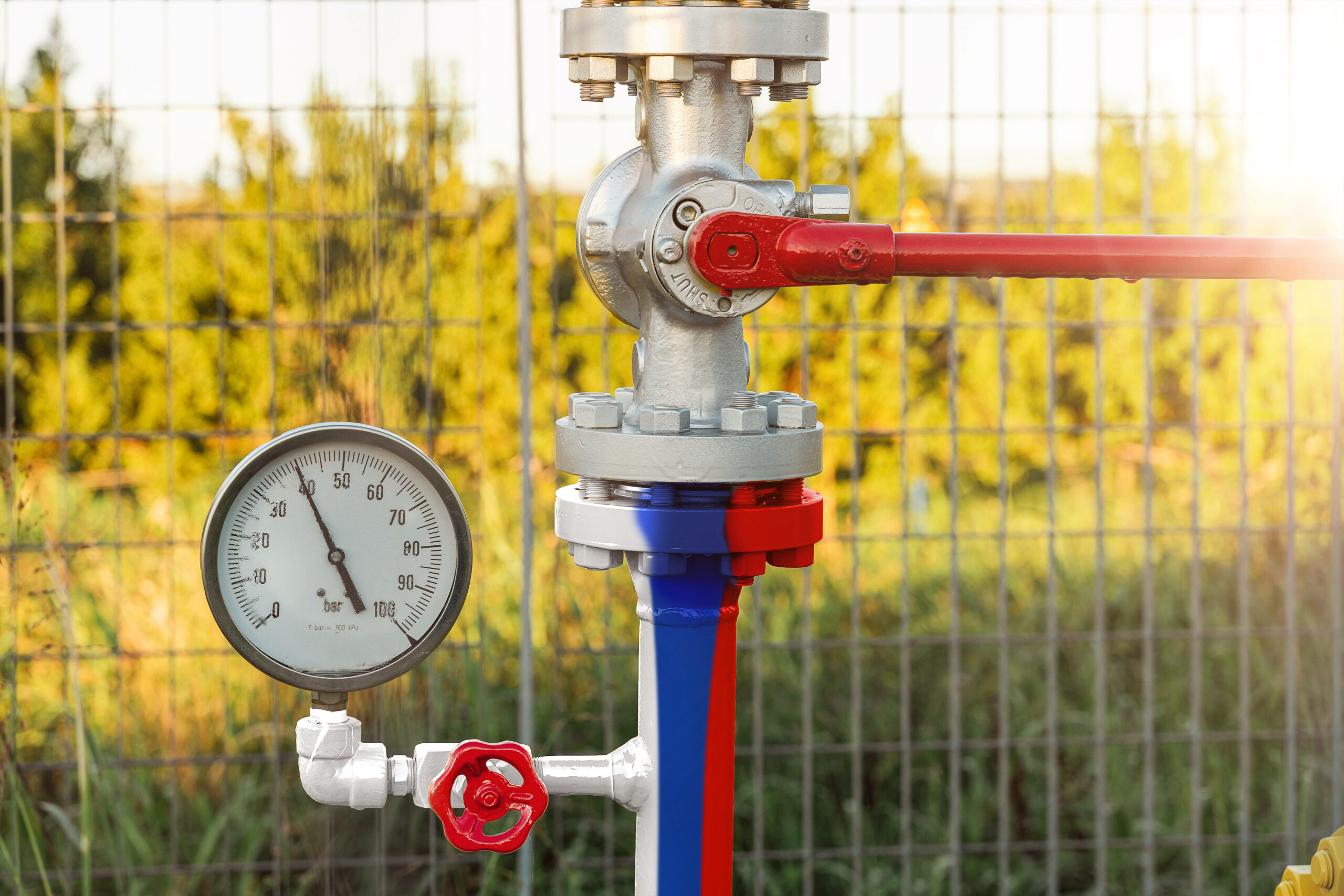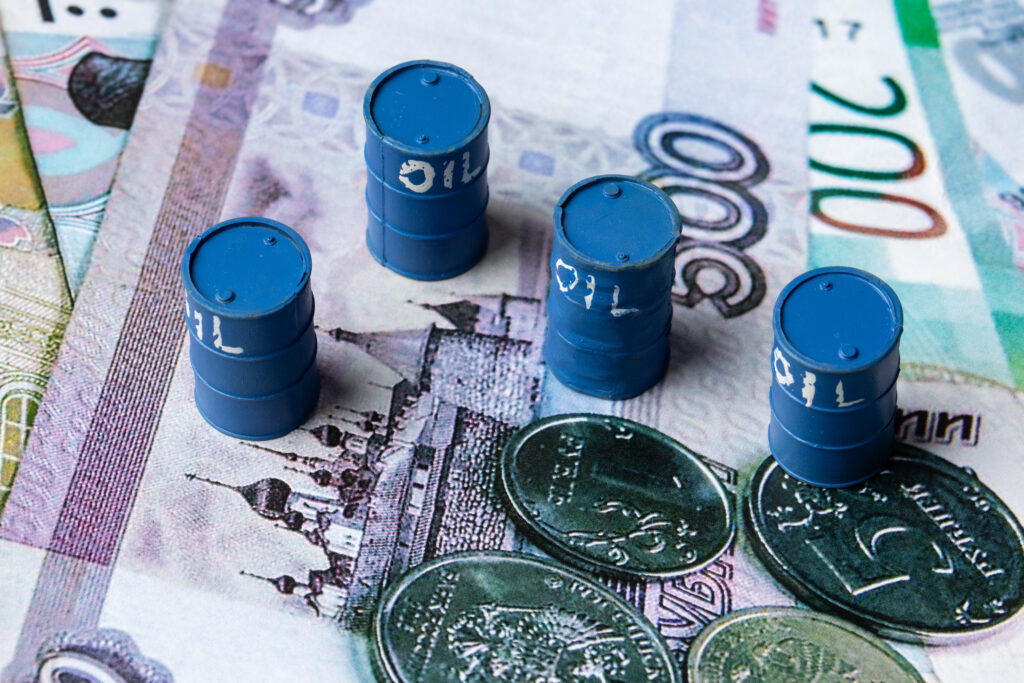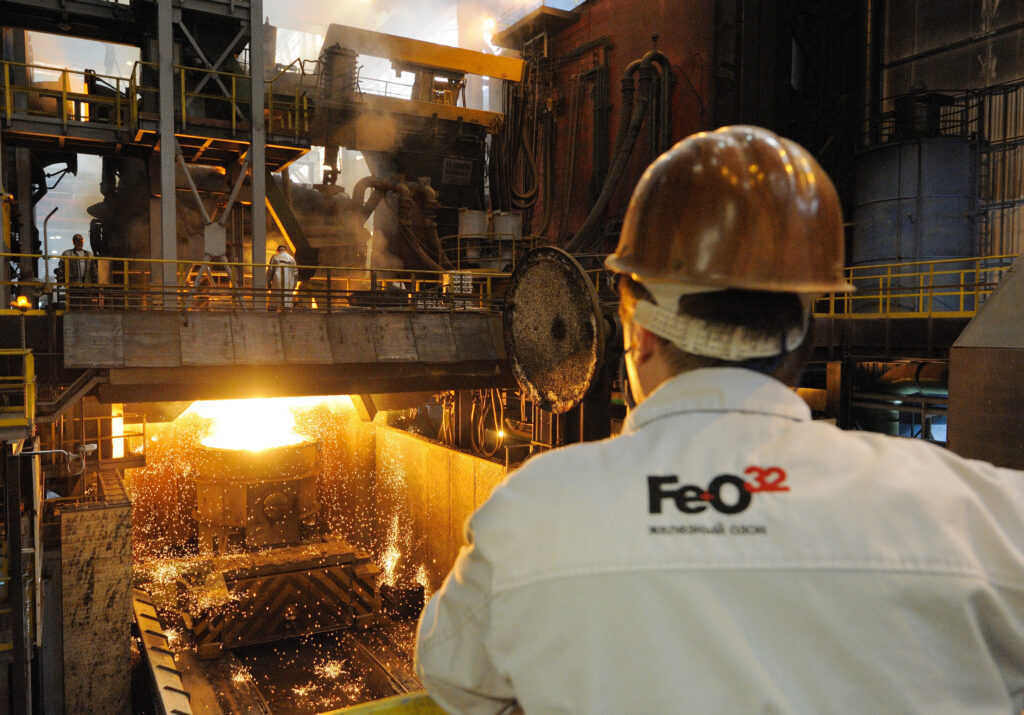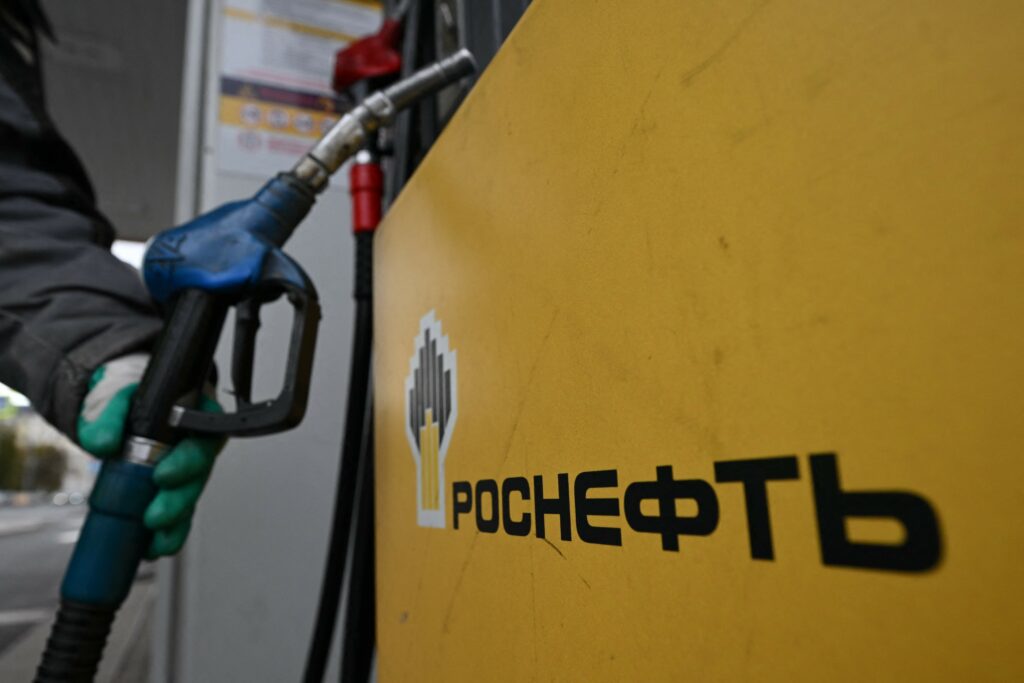Despite the numerous economic sanctions imposed by Russia and Ukraine (along with their allies) on each other, the trade turnover between the two countries amounted to $ 6.1 billion in 2022. By comparison, in 2021 it reached $ 12.3 billion, and the most significant figures were observed in 2011: $ 54.9 billion. In 2022, 66% of the trade turnover between the countries ($ 4.1 billion) was accounted for by Russian natural gas. During the war it has been delivered from Russia to Europe through the territory of Ukraine. The transit factor was most important and acute in the first months after the start of the full-scale invasion, but as the EU switched to alternative supplies, the critical importance of maintaining transit through Ukraine decreased.
February-April 2022: Ukraine «fulfills obligations», Russia reaps maximum profit
On February 22, 2022, the head of Naftogaz of Ukraine, Yuriy Vitrenko, commented on possible risks for the transit of Russian gas to Europe. In his opinion, «only a full-scale war can threaten gas transit through Ukraine.» On February 24, the day the full-scale invasion began, Gazprom reported that demand for its gas export through Ukraine increased by 28%. The measures designed by the European Union, which was then preparing the first package of sanctions, implied almost no impact on the Russian energy sector. On February 28, Ukrainian Foreign Minister Dmytro Kuleba called on EU countries to impose a full embargo on oil and gas imports from Russia, but there were no calls coming from within Ukraine to stop transit.
Sergei Mironov, the leader of the «Just Russia» party, was the first to suggest stopping gas transit from the Russian side on March 2, 2022. He said that in response to the EU sanctions, «as a last resort, the valve on the gas pipeline can be closed.» However, there was no reaction to Mironov’s call from Russia’s top leadership.
Two days later, Ukrainian MP Oleksiy Honcharenko launched an initiative to stop the transit. «Every day Russia receives $ 250 million thanks to the transit,» Honcharenko argued, «while bombing the territory through which the pipeline passes and killing our people.» Honcharenko repeated his call on March 7, but there is no information about the reaction of the Ukrainian authorities.
In mid-March, Gazprom exported gas through Ukraine in maximum volumes that reached up to 106.2 million cubic meters per day. At the same time, the head of Naftogaz of Ukraine, Yuriy Vitrenko, said that Ukraine would continue to transit Russian gas as long as it was technically possible. He noted that he could not disclose the details of political discussions with the Ukrainian president, with Russia and the EU, but as the CEO of the company he felt his duty was to ensure uninterrupted transit as long as it is technically possible. Fearing the loss of access to Russian resources, European consumers have been buying in advance, so that in March 2022, spot gas prices reached a historic high: $ 2,876 per thousand cubic meters.
The head of Naftogaz also noted that Russian troops in Ukraine were treating the gas transit infrastructure with extreme caution: «It is obvious to us that they do not want to damage their own commercial interests and their business relations.» According to Vitrenko, there were attempts by Russia to interfere with the operation of three compressor stations in eastern Ukraine, but after being warned about the risks of such actions for transit, «Russian troops began to behave differently.»
Gas transit through Ukraine continued to increase, reaching 109 million cubic meters per day. At the same time, Ukrainian Energy Minister German Galushchenko said that stopping transit would mean failing to fulfill the commitments made to European companies. In his opinion, it is necessary to focus not on stopping transit, but on freezing the money that Russia expects to receive from its gas exports.
The very next day, the Russian side issued a new signal to discontinue the transit. The Liberal Democratic party called on Russian Deputy Prime Minister Aleksandr Novak to stop gas transit through Ukraine to the EU until the end of hostilities and to use Nord Stream-2 instead of the Ukrainian gas pipeline. However, Novak did not respond to this LDPR initiative, which is understandable: at the time the appeal was published, the cost of Russian gas was still on the rise.
April-September 2022: ‘No’ to Nord Streams, ‘yes’ to gas through Ukraine!
At the end of March, the head of Ukraine’s gas transportation system, Serhiy Makohon, announced that his country was ready to transport even more Russian gas. For this purpose, the EU could halve the supplies via Nord Stream and let this gas pass through Ukraine. He noted that Russian gas in Ukrainian pipelines is also safe from shelling, and that Ukraine can continue to supply gas to towns and villages.
Two weeks after this announcement, Gazprom cut gas transit through Ukraine by 68 percent, causing gas prices in Europe to skyrocket. Meanwhile, Ukraine continued to try to convince its Western allies to transfer gas supplies from Nord Stream to the Ukrainian gas transmission network. According to the Ukrainian side’s calculations, the increase in transit volumes would have increased Kyiv’s cash flow and prevented Russian forces from damaging the pipeline. At the same time, the Russian side again reiterated the idea of stopping the transit. Director Karen Shakhnazarov joined the ranks of supporters of shutting down the pipeline, that by then had already included members of the LDPR and «Just Russia» parties. His appeal was also ignored by the Russian authorities.
In May 2022, the issue of transit through Ukraine escalated for military and political reasons. Since May 11, Ukraine has stopped pumping gas through the Sokhranivka gas metering station (GMS) because this territory has been occupied by Russian troops. Previously, almost one-third of the gas transit from Russia to Europe passed through the station. In response, Gazprom refused to redirect the interrupted gas supplies to another route. As a result, instead of the planned 77.2 million cubic meters per day, the transit was reduced to 53 million cubic meters. Andriy Gerus, Chairman of the Energy Committee of the Verkhovna Rada, said that Ukraine is ready to stop the transit if Europe refuses Russian gas.
The EU was engaged in a heated debate on the issue. Lithuanian Foreign Minister Gabrielius Landsbergis, a supporter of a strict embargo on Russian oil and gas, suggested that Ukraine should stop the transit on its own. In his opinion, if deliveries through Ukraine stop, the embargo problem will solve itself. However, Ukrainian energy officials stuck to their policy of «fulfilling obligations to partners.» At the same time, two electronic petitions demanding to stop the transit of Russian gas were submitted to the Ukrainian president: one of them collected six signatures, the other - 21.
The issue of termination of transit by Russia resurfaced in June 2022. Russian MP Aleksey Zhuravlev declared that «maintaining and paying for transit through Ukraine is not just a matter of complying with contracts; for the West, it is another sign of our indecision and weakness». He was echoed by Sergei Mironov who argued that Russia must stop gas transit through Ukraine in order not to support the Zelensky regime.
At about the same time, Andriy Gerus, the head of the Verkhovna Rada Committee on Energy, responded to Ukrainian critics of maintaining transit. He noted that the transit of Russian gas could be stopped only with the consent of the EU, but not by a unilateral decision of Ukraine. In addition, Serhiy Makogon, General Director of Gas TSO Ukraine, remarked that the transit of Russian gas should be preserved even during the war: «As long as the transit passes through Ukraine, the Russians are not deliberately destroying our gas transportation infrastructure, such as refineries or railway infrastructure. This is an opportunity for us to continue supplying gas to Ukrainian consumers.
The Ukrainian side welcomed fall in a relatively confident mood. On August 31, the head of Gas TSO Ukraine, Serhiy Makogon, announced that the absence of Russian gas transit would not bring insoluble problems for the Ukrainian gas transportation system, «although it will be hard.»
September 2022 — present. Court proceedings and the future of transit
On September 26, 2022, a series of explosions destroyed both pipelines of Nord Stream-1 and one of the two pipelines of Nord Stream-2. However, the accident did not lead to a sharp increase in supplies through the Ukrainian gas pipeline, which caused a new round of clashes between Naftogaz and Gazprom, but this time it unfolded in the International Court of Arbitration. In early September, Naftogaz demanded money from Gazprom for transit: Gazprom is obligated to pay under the contract regardless of the actual amount of gas pumped, which dropped significantly in the summer and fall of 2022. In response, Gazprom threatened Naftogaz with sanctions, which would mean an automatic ban on any relations with the company — and thus a halt to transit through Ukraine.
Having prepared a plan for «maximum economic and efficient use of available gas resources,» the Ukrainian government considered the potential scenario of a complete stop of gas transit through Ukraine to the EU. Volodymyr Zelenskyy also admitted that Russia could blow up Ukraine’s gas transportation system to force the EU to launch Nord Stream-2.
In December, Oleksiy Honcharenko again proposed banning Russian gas, this time speaking at the Verkhovna Rada, but again failed to get support. The Ukrainian authorities did not intend to stop transit from their side, but were ready for Russia to shut down the pipeline. Ukrainian Energy Minister German Galushchenko said at the time: «We have long assumed that Russia can stop transit at any moment. These risks have been calculated.» By then, European partners were less worried: by December 2022, the price of gas had fallen from a record $ 2,000 to less than $ 850 per thousand cubic meters.
In 2023, the transit issue remains relevant, but it seems that the level of interest of the parties has changed diametrically. At the end of June, German Galushchenko announced that the chances of Ukraine and Russia agreeing to extend the contract on gas transit to Europe were slim. He suggested that the transit of Russian gas through Ukraine would end in 2024.
This news clearly were not received in Russia with much joy, but the events that followed are even more remarkable. On July 17, after Ukraine’s attack on the Crimean bridge, Alexei Zhuravlev, deputy chairman of the Russian State Duma’s defense committee, suggested stopping gas transit through Ukraine: «We should stop all trade relations with them, that is, stop pumping gas. I am sure of it. That we will be able to do it. We have the means and the strength to do it all.»
In response to Zhuravlev’s statement, RIA Novosti published an article with the catchy headline «Turn the Valve: Ukrainian Gas Transit Hangs by a Thread.» Its essence is summed up in a few sentences at the end: «Any disruptions should be approached in an extremely balanced manner. Simple and seemingly obvious solutions are very attractive, but they can have a very long and painful echo».
Conclusions
Despite mutual fears at the beginning of the war that transit might be suspended, neither side took this step. The position of the European Union became the key factor here. Russia needed unprecedented money that it was receiving from the EU for its gas supplies, while Ukraine needed Europe’s military and political support. At the same time, the demand to «shut down the pipeline» did not become a loud political slogan in any country. In the spring and fall of 2022, Ukrainian politicians were repeatedly forced to justify the existence of transit: both from the point of view of European interests and from the point of view of Ukraine’s own security. After the reduction of the EU’s dependence on Russian energy resources, the issue of transit abandonment was no longer extremely acute for either European or Ukrainian politicians. As a result, in the summer of 2023, the Russian side started signaling some interest in preserving this supply channel.
It can be concluded that the continuation of transit during the war set certain limits and restrictions on escalation. Against the backdrop of the horrific casualties and destruction of the war, it is easy to imagine cutting off transit from Ukraine, as this step would have had a certain logic: to deprive the aggressor country of extraordinary revenues from energy resources that support its war machine. At the same time, this drastic step would have had many unpredictable consequences. For example, would the EU be so serious about helping Ukraine if it were deprived of the flow of energy resources precisely because Kyiv cut off transit? How would such a step affect the mood of voters and the economies of EU countries? Probably, the consequences of such a step would have been most serious for Ukraine, and that is why it preferred to pump Russian gas through its territory, thus guaranteeing European support.
At the same time, the flow of money back to Russia strengthened the Russian economy and helped it survive in 2022. The transit issue depended primarily on the position of Europe and its willingness to confront Russia. There is no doubt that it was European interests that prevented Ukraine from cutting off transit in 2022, when the possibility of replacing Russian energy resources was extremely vague.
The fate of gas transit in 2023 and beyond is another question. In addition to its purely economic purpose, its operation also maintained the appearance of communication or connection between Russia and the EU. The pipeline itself will continue to function as a transmission and distribution network on the territory of Ukraine. However, the issue of gas supply from the Russian side is more conditioned by the military and political dynamics on the battlefields of Ukraine and in Russia itself.










